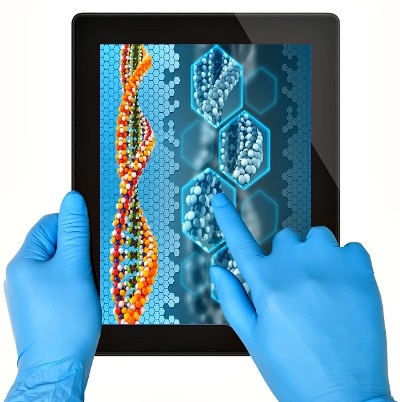Historically, drugmakers have crawled thei r way to new information technologies, lagging their counterparts in financial services and other industries that grabbed onto tech rapidly. Until the 2000s, for instance, pharma companies were still using mostly paper-based systems for keeping clinical trials data, while banks were already letting customers do business online.
r way to new information technologies, lagging their counterparts in financial services and other industries that grabbed onto tech rapidly. Until the 2000s, for instance, pharma companies were still using mostly paper-based systems for keeping clinical trials data, while banks were already letting customers do business online.
Tech companies have often struggled to crack the code for appealing to drugmakers and healthcare companies, which have been notoriously resistant to many of the latest trends in IT.
But there's mounting evidence that drug companies are changing the way they consume new tech, and one prime example of this shift is the industry's well-documented affection for Apple's ($AAPL) iPad. Pharma companies are buying the tablets by the thousands, doling them out to sales reps and executives, some of whom probably already own the popular devices.
The late Steve Jobs, who became a fan of biotech before his death last year, might someday be remembered for helping change how biopharma companies buy technology. How? He was famous for ushering to market personal tech that people coveted and cherished once they owned it. Peoples' romance with the iPad doesn't end at home, and it has followed them to work.
Zackary King, senior vice president and general manager of Trinity Pharma Solutions, has participated in the evolution in pharma's use of tech. His Waltham, MA, company provides analytics and business intelligence software for commercial organizations in biopharma and medical devices. He says that 75% of his company's customers have adopted the iPad.
"Their adoption of the iPad has been amazingly fast," King tells FierceBiotech IT, "and I think it's mostly driven by end-users. People like you and I bought iPads and iPhones years ago. When you work for a big company, you wonder why they can't enable your iPad or your iPhone. I think the demand actually came from the users, unlike in the past where technology decisions came from the IT department."
King thanks the iPad for helping to open pharma executives' eyes to web-based software like Trinity's.
"I think, with the iPad, one of the amazing things that we are seeing is that it's driving the adoption of SaaS (software as a service)," King says. "These tablets aren't really made for heavy local power applications, so most everything has to be delivered via the Internet."
IDC Health Insights recently revealed results of an IT spending survey of more than 100 life sciences companies. Apple trailed only Dell ($DELL) in the hardware category, with the number of groups planned to purchase Apple hardware climbing 220% since 2009, and IDC analysts attributed this steep ascent to the dominance of the iPad as the tablet of choice among life sciences groups.
"If you go back two or three years, Apple had almost no presence in terms of hardware, and now they are one of the largest and realistically second behind Dell in hardware in life sciences, largely because of the iPad," Eric Newmark, program director, life sciences, at IDC, told FierceBiotech IT. It's "almost becoming a monopoly on the sales and marketing side. You have literally almost every pharma going exclusively to the iPad either now or within the next year and you see almost no competition from any other tablet makers."
At Trinity and other life sciences software makers, it's been a no-brainer to optimize their applications for the iPad. Medidata Solutions ($MDSO) and other companies have tailored their software for clinical researchers in biopharma to use on the tablet.
"It's a pretty amazing transformation to watch," Newmark says. "It's pretty unprecedented." -- Ryan McBride (Email | Twitter)